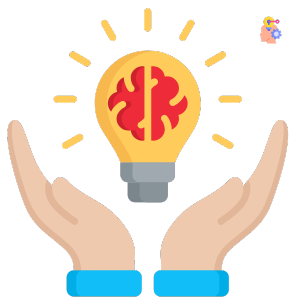
Dr Sathiya Ganesan’s
Every child’s worth is immeasurable — with the right care, abilities shine brighter than limitations.
An Intellectual Disability can impact a child’s ability to learn, solve problems, communicate, and live independently. However, with early support, understanding, and tailored interventions, every child can achieve meaningful growth and lead a fulfilling life.
At Dr. Sathiya Ganesan’s Child and Adolescent Psychiatry Center, we are dedicated to nurturing each child’s potential with compassion, expertise, and hope.
Understanding Intellectual Disability
Unlocking Abilities. Building Lives of Purpose and Pride.

Intellectual Disability (ID) is a neurodevelopmental condition characterised by below-average intellectual functioning and difficulties with adaptive behaviour, such as communication, self-care, and social skills. It usually becomes apparent during childhood and affects everyday functioning. With early diagnosis and comprehensive support, children with ID can learn, adapt, and grow to lead enriched lives.
Common Signs of Intellectual Disability
Recognising these signs early can lead to timely intervention and better outcomes.
Children with ID may show:
- Delayed milestones, such as walking or talking
- Difficulty understanding social rules or consequences
- Problems with memory, problem-solving, or abstract thinking
- Challenges in communication and language development
- Struggles with daily living activities like dressing, bathing, or managing money
- Need for extended educational support
- Difficulty adjusting to new situations
Comprehensive, Child-Centered Evaluation
Our evaluation process is thorough, compassionate, and individualized. Dr. Sathiya Ganesan uses standardized cognitive assessments, adaptive behavior scales, developmental history analysis, school reports, and clinical observations to accurately diagnose Intellectual Disability. Every evaluation focuses on identifying the child’s strengths, needs, and growth possibilities.
Guiding Families with Knowledge and Heart
Families are an essential part of a child’s progress. Dr. Sathiya Ganesan provides empathetic education about Intellectual Disability, practical caregiving strategies, and emotional support to help families navigate challenges and celebrate milestones. Empowering parents and caregivers is key to creating a nurturing environment for growth.
Personalized, Evidence-Based Therapy Solutions
Our tailored therapy programs include:
- Special Education Support to maximize learning based on the child’s capabilities
- Speech and Language Therapy to enhance communication skills
- Occupational Therapy for developing self-care and motor skills
- Social Skills Training to foster meaningful relationships
- Behavioral Therapy to encourage positive behaviors and coping skills
Every intervention plan is personalized to promote the child’s highest level of independence and self-confidence.
Thoughtful Medication Management for Holistic Growth
Medications are occasionally used if a child with ID has associated challenges such as severe anxiety, mood disturbances, sleep disorders, or behavioral issues. Dr. Sathiya Ganesan ensures judicious use, with minimal effective doses, close monitoring, and continuous dialogue with families.
Building Healthy Routines for Mind-Body Balance
A well-structured daily routine can significantly help children with Intellectual Disability develop life skills and reduce anxiety. We work with families to design consistent schedules, promote healthy sleep and nutrition habits, encourage physical activity, and introduce mindfulness exercises for emotional balance.
Integrated Care for Associated Emotional and Learning Challenges
Children with Intellectual Disability may also experience conditions like Autism Spectrum Disorder (ASD), ADHD, mood disorders, or epilepsy. Our integrated care model ensures that all co-existing issues are addressed collaboratively, providing seamless, holistic support to each child and family.
Key Highlights of Our Intellectual Disability Care
At Dr. Sathiya Ganesan’s Centre, we offer:
- Early, Comprehensive Diagnostic Evaluations
- Individualised Educational and Therapy Plans
- Family Empowerment and Training Programs
- Life Skills Development Focus
- Collaboration with Schools and Therapists
- Long-Term Support Toward Independence and Inclusion
We believe that every child can learn, grow, and contribute in unique, valuable ways.

Why Choose Dr. Sathiya Ganesan for Intellectual Disability Care?
- Specialized Expertise in Child and Adolescent Neurodevelopmental Disorders
- Holistic, Child-Centered Approach tailored to each individual
- Evidence-Based Therapies rooted in compassion and real-world applicability
- Strong Family Involvement in every step of care
- Long-Term Vision to nurture independence, dignity, and inclusion
Ready to Begin the Healing Journey?
Children with Intellectual Disability have immense potential to grow, contribute, and lead meaningful lives. With early diagnosis, supportive therapies, and compassionate guidance, their journeys can be full of achievement and joy. At Dr. Sathiya Ganesan’s Child and Adolescent Psychiatry Center, we walk alongside families — lighting the path with knowledge, empathy, and hope.
How early can Intellectual Disability be diagnosed?
Intellectual Disability is often diagnosed in early childhood when delays in milestones, learning, or adaptive skills become evident. Early diagnosis and intervention are crucial.
Can children with Intellectual Disability attend regular school?
Some children can, especially with Individualized Education Programs (IEPs) or supportive classroom accommodations. Others may benefit from specialized education settings.
Will my child ever be independent?
With consistent therapy, skill-building, and environmental support, many individuals with mild to moderate ID can achieve partial or full independence in adulthood.
Does Intellectual Disability improve with therapy?
While Intellectual Disability is lifelong, therapy can greatly enhance adaptive functioning, social interaction, communication, and quality of life.
Are medications necessary for Intellectual Disability?
Medications are not for the core disability itself but may help manage associated emotional, behavioral, or sleep difficulties.
How can parents support a child with ID at home?
Encouraging self-help skills, maintaining a structured routine, using clear communication, practicing patience, and celebrating small achievements are powerful ways to support growth.


